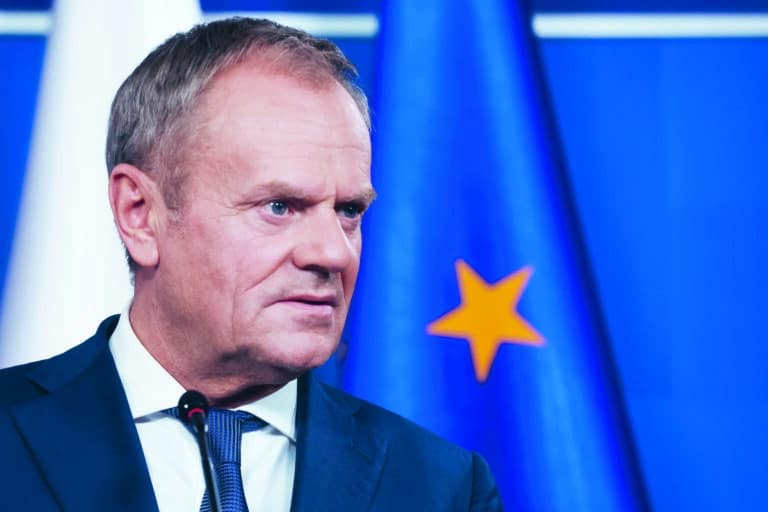Polish commercial real estate to rebound in 2024
Real estate advisory firm Savills has presented a preliminary summary of 2023 for the commercial property market in Poland and predicts key trends going forward.
Geopolitical and economic factors and financial market instability still have a significant impact on the real estate landscape and are expected to continue to shape it in the near future, but the market is expected to see a rebound in investor, developer and tenant activity in the near future, Savills says.
“The pandemic and the geopolitical situation have in recent years caused significant global economic turmoil and driven up inflation. To protect the value of money, central banks have consistently been hiking interest rates, which are the main culprit for lower commercial real estate investment and development activity. Looking ahead, as financing costs begin to fall, we expect the mismatch of the pricing expectations of buyers and sellers to narrow and investment to gradually pick up,” says Kamil Kowa, Management Board Member of Savills Poland.
Market liquidity problems were exacerbated by the underlying dominance of international capital on the Polish property market, says Savills. Total investment volume in Poland for the period January-September 2023 declined by around 65% year-on-year. Cross-border capital is waiting for the economy to stabilize, which would reduce transactional risks.
During the first half of 2024, investors are expected to continue to target real estate assets below €100 million for long-term investment and value-add properties with the potential to add value through active management in space leasing, refurbishment, unlocking their development potential or repurposing.
Savills anticipates that modern and well-connected big-box logistics facilities and urban warehouses will continue to attract investors amid continued demand for alternative assets in sectors such as the PRS and private student accommodation. If demand on the traditional residential market remains strong and developers are unwilling to sell projects to PRS operators, investors from this sector will begin to shift their focus towards affordable plots and properties intended for commercial use that could be used for multifamily projects.
Savills estimates that Poland’s total office stock will surpass 12.8 million sq m by the end of the year. As a result, 2023 will be remembered as a year with the lowest ever level of new office supply in Warsaw (approx. 67,000 sq m, a decrease of around 70% from 2022) and a year with the second-lowest new supply in regional cities in the last decade (approx. 328,000 sq m). Development activity is not expected to gather pace until 2025.
According to Savills, changes to working models initiated as preventive measures during the pandemic have triggered a more profound transformation of offices and work environments. They have also impacted demand for office space throughout 2023.
“After nearly three years of combining remote and in-office work, employers are now able to better assess their actual office space requirements. Companies are increasingly downsizing their offices. The average new office lease size in Warsaw has been shrinking steadily for the last three years, from over 1,000 sq m before the pandemic to approximately 800 sq m in 2023. Instead, some tenants tend to opt for a higher standard or better location. Due to supply constraints, companies looking for an office can take advantage of sublease options – many available at bargain rents – or the growing supply of coworking offices,” says Jarosław Pilch, Head of Office Agency, Tenant Representation, Savills Poland.
In the first quarter of 2023, supply of new industrial and warehouse space in Poland hit an all-time high of 1.9 million sq m following the completion of projects that had been launched in more favorable economic conditions and amid record-high occupier demand. The following months saw a marked slowdown in new construction starts, especially speculative projects.
Savills estimates that this year’s total new warehouse and industrial supply will reach approximately 3.7 million sq m – well below the figure posted in the peak year of 2022 but still the second highest volume of new deliveries in the history of the Polish warehouse market. 2024 is shaping up to be a year of fewer completions given the development pipeline and falling demand.
“We expect that, as more space becomes vacant in existing buildings, 2024 will see more renegotiations and relocations to well-established and good quality facilities in prime locations. Data centers that are key to meeting the increased demand for cloud services will also grow. Semiconductor demand is growing sharply amid such trends as AI, electric vehicles and automation of manufacturing processes, with the EU’s share of semiconductor production expected to more than double to reach the European Chips Act’s target of global output by 2030. Benefiting from its central location and pool of high-skilled labor, Poland appears to have been targeted by European semiconductor manufacturers as part of nearshoring strategies,” says Katarzyna Pyś-Fabiańczyk, Head of the Industrial Services Hub, Savills Poland.
The real estate sector will need to catch up technologically in the coming years. The key infrastructure systems of a substantial proportion of organizations and buildings are in need of upgrading. New AI-driven solutions will emerge on the market, but they will, however, need to address the growing concerns about data confidentiality and reliability of PropTech.
ESG is expected to remain a hot topic in 2024, but Savills believes that words will translate into actions next year with a growing number of implementations on the property market. Industry will continue to prioritize decarbonization, reduction of energy usage and carbon footprints. Both investors and banks financing new projects will become very mindful of ESG, which will be an increasingly important factor in real estate acquisition decisions.
“After a period of focus on ESG planning and learning, the time has come to implement solutions announced in strategies that have been developed so far. 2024 will therefore be a year in which the real estate industry will be able to say in relation to ESG: ‘Check!.’ The S paradigm will certainly evolve through a shift from ad hoc social initiatives to an informed process of creating social value and reporting. The G component of ESG will require implementing a set of policies and processes for sustainable procurement and human rights. 2024 is also expected to be a year of taking steps to combat unsubstantiated greenwashing claims, that is the use of ESG for publicity only,” says Katarzyna Chwalbińska-Kusek, Head of ESG and Sustainability, Savills Poland.
Savills also notes that there is ever more focus on the “purpose” property serves, because now, more than ever, not just the environmental but the social impact of how we use real estate is very relevant. The world and the economy are changing in fundamental ways and what we expect from property is changing with them. It is a major challenge – and opportunity – for the industry, placing a huge responsibility on market players.







